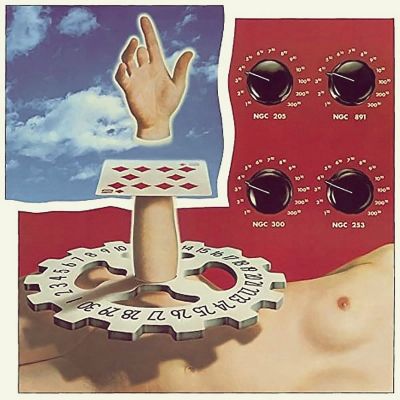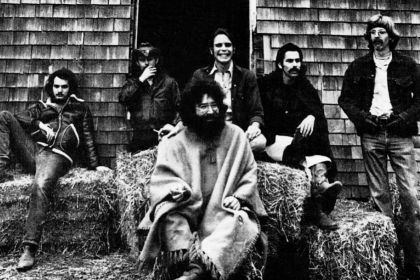SONGWRITER
Sugaree: Jerry Garcia's song referencing his lyricist's criminal past

Garcia 1972 LP cover
Sugaree is a 1972 track that first appeared on Jerry Garcia's debut solo album, the guitarist who is widely regarded as a principal songwriter and a vocalist of an iconic San Francisco band the Grateful Dead. All instrumental and vocal lines were performed by Jerry Garcia himself during the song recording with the exception of drums which were done by Bill Kreutzmann, also a Grateful Dead member.
Along with other tracks on the Garcia album, Sugaree was performed live by the Grateful Dead, often unabridged, eventually cementing it for many fans as part of the band's repertoire.
The fact that the song lyrics were written by Robert Hunter, the band's long-time lyricist, further connects Sugaree to the psychedelic style of the Grateful Dead. According to him, the song was originally conceived as Stingaree which refers to a poisonous South Sea manta and describes his troubled experience of being involved with a criminal gang where he once heard the phrase "hold your mud and don't mention my name" which later inspired the refrain line "please forget you knew my name."
Listen to Sugaree by Jerry Garcia:
Regarding the title change of Sugaree, Robert Hunter cited the 1966 song Shake Sugaree by folk singer Elizabeth Cotten as one of the reasons:
"...it sounded better that way, made the addressee seem more hard-bitten to bear a sugar-coated name. The song, as I imagined it, is addressed to a pimp. And yes, I knew Libba's song, and did indeed borrow the new name from her, suggested by the 'Shake it' refrain."
The song has a very euphonic vibrancy thanks to Jerry Garcia's clever harmony that flawlessly follows the canons of classical theory. Sugaree verses evolve against the progression of three primary major chords in the key of E major, while the choruses evoke minor tones thanks to the chord chain's inclusion of triads of the relative minor key.
Discover more songs composed in Ionian major mode and check out their harmonic analysis in the following articles:
- 6 songs to unpack Ionian mode and the major scale
- 9 Beatles songs that combine harmonic major with Ionian mode
- Tumbling Dice: hundred reels of tape for a messy Rolling Stones mix
- D'yer Mak'er: meaning of Led Zeppelin's most controversial song
- Marie Laveau: ballad of the legendary Voodoo Queen
- Statesboro Blues: no one can sing the blues like Blind Willie McTell
- Hushabye: folk roots of famous rock and roll lullaby
- Coal Miner's Daughter was forced to remove a third of the lyrics from her autobiographical song
- I Wanna Be Sedated: pure classical harmony cementing the Ramones' hit in punk rock history
- Seven Seas of Rhye: song of imaginary land brought to life by Ionian and Mixolydian modes
- Yakety Yak: teenager's answer to household chores in a hit song



